#Samaritan Ministries
Text
St. Luke the Evangelist - Healer, Historian, Iconographer
This blog post offers a comprehensive exploration of the life and significance of Saint Luke the Evangelist. It delves into his diverse roles as a healer, historian, and iconographer, shedding light on his contributions to early Christian literature and.
In the name of God the Father, Christ Jesus His Son and the Holy Spirit, One True God. Amen
Dear brothers and sisters in Christ Jesus
IntroductionLife and MinistryNew Testament ReferencesGospel of LukeThe Universal SaviorParables of Mercy and ForgivenessThe Good SamaritanThe Ministry of HealingWomen in Luke’s GospelLuke – As a HistorianLuke – As an Artist
Introduction
On October 18, the…
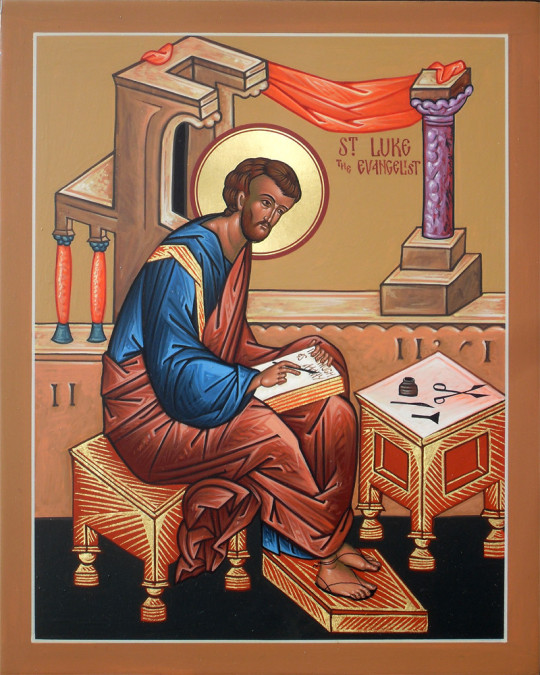
View On WordPress
#Acts of the Apostles#Early Christian Literature#featured#Good Samaritan Parable#Gospel Authorship Traditions#Gospel of Luke#Iconography in Orthodox Christianity#Indian Orthodox Church#Luke the Physician#Luke&039;s Education and Background#Ministry of Healing Women in Luke&039;s Gospel#New Testament References to Luke#Orthodox faith#Parables of Mercy#Prodigal Son Parable#St. Luke as a Historian#St. Luke as an Artist#St. Luke the Evangelist#St. Luke&039;s Contribution to Christian Faith#St. Luke&039;s Gospel Themes#St. Luke&039;s Legacy in Christian Art and Writing#St. Luke&039;s Relationship with Apostle Paul
0 notes
Text
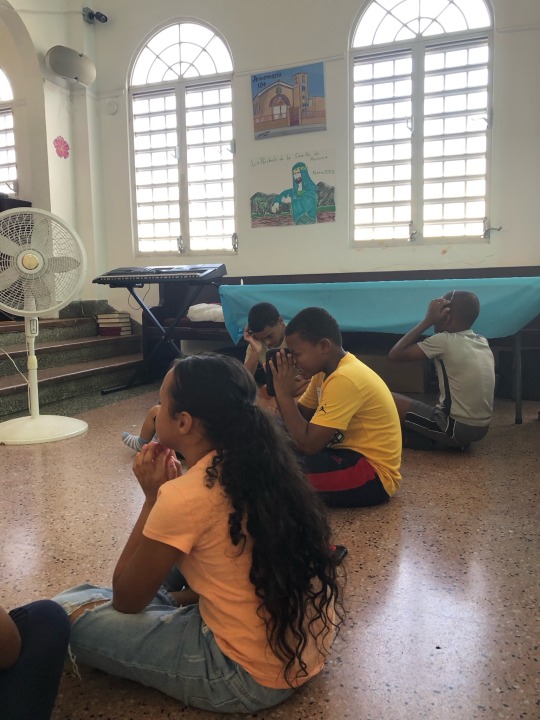
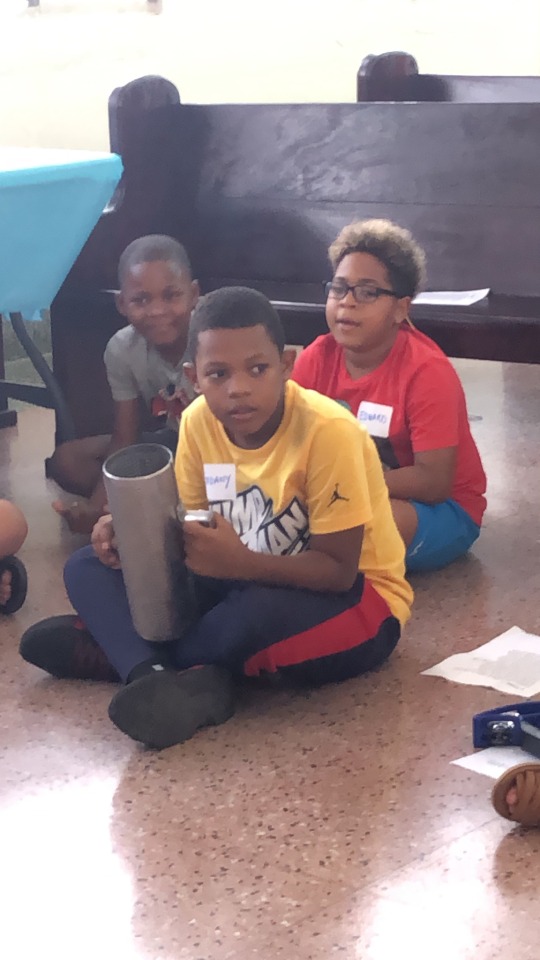



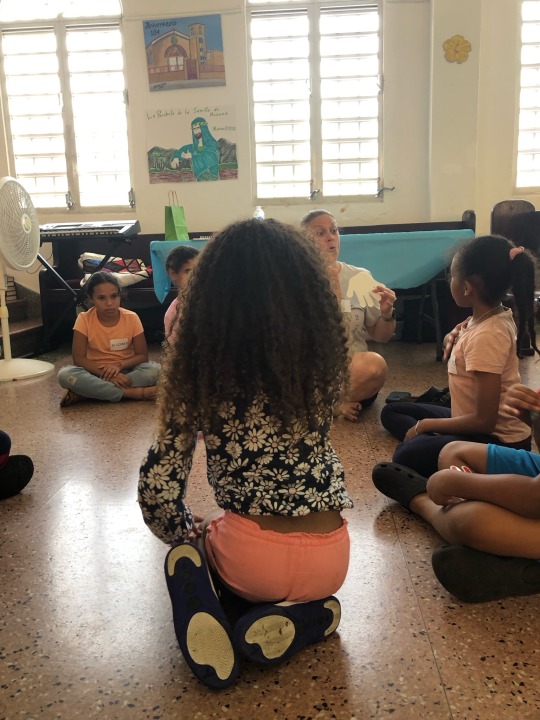

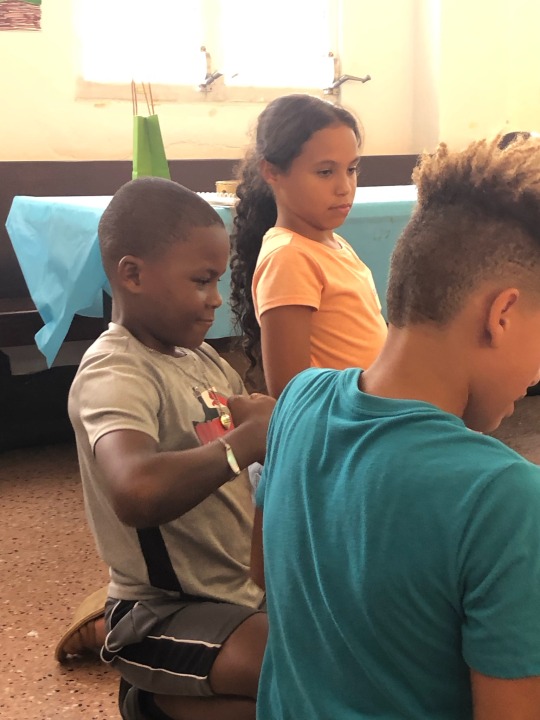

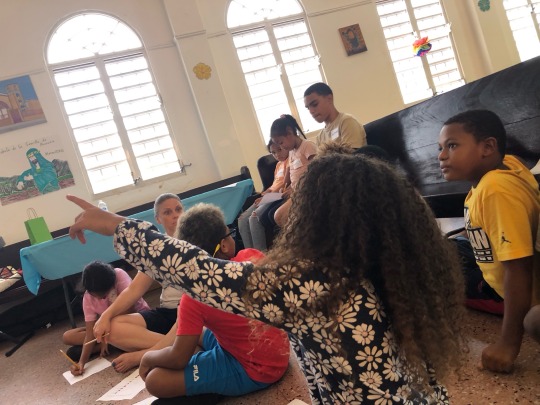
🇵🇷 VBS at San Pablo is continuing this week. Our lessons and crafts have been in relation to the Fruits of the Spirit and some parables from the New Testament ranging from The Good Samaritan to The Persistent Widow, and the Mustard Seed. 🎨🍎🍋🍓🍇🍍
#vbs#kids arts and crafts#The Fruits of the Spirit#New Testament Bible stories#Parables of Jesus#The Good Samaritan#The Persistent Widow#The Parable of the Mustard Seed#youth camp#youth ministry
1 note
·
View note
Text
Living Water and Real Food (John 4:5-42)
Good news is for everyone, not just a select few.
Jesus and the Samaritan Woman, by He Qi
So he came to a town in Samaria called Sychar, near the plot of ground Jacob had given to his son Joseph. Jacob’s well was there, and Jesus, tired as he was from the journey, sat down by the well. It was about noon.
When a Samaritan woman came to draw water, Jesus said to her, “Will you give me a drink?” (His disciples had gone into the town to buy…

View On WordPress
#bread of life#christ&039;s disciples#christian discipleship#christian faith#christian life#christian love#christian ministry#christian mission#christian service#christian spirituality#christianity#disciples#good news#gospel#gospel of john#jesus christ#john 4#living bread#living water#samaritan woman#woman at the well
0 notes
Text

However, this mechanism did not work for Samah*, who has tried to use the link to submit a request to the Foreign Ministry to evacuate her sister and her sister’s children from Gaza since early December. But their names have not appeared on the lists.
Samah tells Mada Masr that she visited the ministry multiple times to inquire about the status of her requests. Eventually, one of the employees there told her that the matter is in the hands of the General Intelligence Service, and that she should contact them. Determined, Samah actually went to the intelligence body’s headquarters and spoke with an official over the intercom at the building’s gate, but he denied responsibility for the matter.
In the end, as stories began to spread of people who managed to leave Gaza after paying for coordination services, Samah realized that “we have to pay a bribe to get our names on the lists.” What Samah describes as a “bribe” is what is otherwise known as “coordination fees.” For Egyptian passport holders, the cost can go up to US$650 for individuals over 16 years old and $325 for those under 16. Samah could not afford this, and so her sister and her children remain trapped in Gaza.
In contrast, Latif*, a Palestinian living in the UAE, managed to secure the evacuation of his Egyptian wife and her mother from Gaza. The cost for coordinating their exit was $650 per person, paid to Hala, the company owned by Ibrahim al-Argany. Once Hala received the money, their names were added to the Egyptian coordination lists, and they were evacuated in late December.
The situation is different for Palestinians due to the lack of an official mechanism for their exit. Therefore, Latif was unable to evacuate his mother and siblings, who only have Palestinian paperwork, to join their father, who was stranded on the Egyptian side in Arish city.
The father, a man in his 60s, entered Egypt through the Rafah crossing from Gaza with his newlywed daughter to see her off at the airport in Cairo as she was moving to Germany. On his way back to Gaza on October 7, Hamas launched its attack on Israel, dubbed the Aqsa Flood Operation, and the aggression on Gaza ensued.The crossing was closed and bombed multiple times, which left the father stranded in Arish. Without any money left, he is currently staying in a hotel with the help of good samaritans in the city who are covering his rent.
About 40 kilometers away from Arish, behind the barrier separating the Gaza Strip from Sinai, the man’s wife and two daughters are living with his brother-in-law and his family in a tent in Palestinian Rafah.
Despite losing everything he owned when the house he built “with the hard work of a lifetime,” as he put it, was bombed in Khan Younis, the father did not stop trying to evacuate his family from the strip and contacted coordination agents in early January.
The agents, however, demanded $11,000 per person. This would come out to $33,000 for his wife and two daughters. The exorbitant amount is due to their status as Palestinians holding no other passport.
#yemen#jerusalem#tel aviv#current events#palestine#free palestine#gaza#free gaza#news on gaza#palestine news#news update#war news#war on gaza#egypt#rafah crossing
316 notes
·
View notes
Text
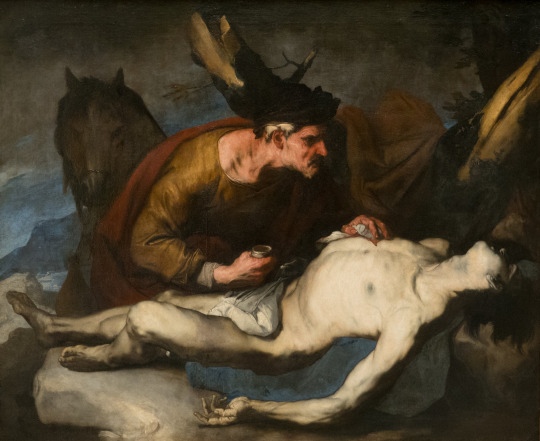
Luca Giordano (Italian, 1634-1705)
Le Bon Samaritain, ca.1650
Musée des Beaux-Arts de Rouen
“Do to others as you would have them do to you.” Luke 6:31
One of Jesus’s most well-known parable appears only in the Gospel of Luke but is very much a part of His message throughout His ministry. It is the Parable of the Good Samaritan.
“A man was going down from Jerusalem to Jericho, and fell into the hands of robbers, who stripped him, beat him, and went away, leaving him half dead. Now by chance a priest was going down that road, and when he saw him, he passed by on the other side. So likewise a Levite, when he came to the place and saw him, passed by on the other side. But a Samaritan while traveling came near him; and when he saw him, he was moved with pity. He went to him and bandaged his wounds, having poured oil and wine on them. Then he put him on his own animal, brought him to an inn, and took care of him. The next day he took out two denarii, gave them to the innkeeper, and said, ‘Take care of him; and when I come back, I will repay you whatever more you spend.’ Which of these three, do you think, was a neighbor to the man who fell into the hands of the robbers?” He said, “The one who showed him mercy.’ Jesus said to him, ‘Go and do likewise’“ (Luke 10:30-37).
#samaritain#le bon samaritain#the good samaritan#samaritan#art#fine art#christian art#christianity#christentum#catholic#catholic art#fine arts#oil painting#traditional art#the bible#christian#european art#classical art#european#mediterranean#europe#europa#italian art#italy#italian#italian peninsula
72 notes
·
View notes
Text

John 4:3-22 (ESV). “He left Judea and departed again for Galilee. And he had to pass through Samaria. So he came to a town of Samaria called Sychar, near the field that Jacob had given to his son Joseph. Jacob’s well was there; so Jesus, wearied as he was from his journey, was sitting beside the well. It was about the sixth hour. A woman from Samaria came to draw water. Jesus said to her, “Give me a drink.” (For his disciples had gone away into the city to buy food.) The Samaritan woman said to him, “How is it that you, a Jew, ask for a drink from me, a woman of Samaria?” (For Jews have no dealings with Samaritans.) Jesus answered her, “If you knew the gift of God, and who it is that is saying to you, ‘Give me a drink,’ you would have asked him, and he would have given you living water.” The woman said to him, “Sir, you have nothing to draw water with, and the well is deep. Where do you get that living water? Are you greater than our father Jacob? He gave us the well and drank from it himself, as did his sons and his livestock.” Jesus said to her, “Everyone who drinks of this water will be thirsty again, but whoever drinks of the water that I will give him will never be thirsty again. The water that I will give him will become in him a spring of water welling up to eternal life.” The woman said to him, “Sir, give me this water, so that I will not be thirsty or have to come here to draw water.” Jesus said to her, “Go, call your husband, and come here.” The woman answered him, “I have no husband.” Jesus said to her, “You are right in saying, ‘I have no husband’; for you have had five husbands, and the one you now have is not your husband. What you have said is true.” The woman said to him, “Sir, I perceive that you are a prophet. Our fathers worshiped on this mountain, but you say that in Jerusalem is the place where people ought to worship.” Jesus said to her, “Woman, believe me, the hour is coming when neither on this mountain nor in Jerusalem will you worship the Father. You worship what you do not know; we worship what we know, for salvation is from the Jews.
“From Emptiness to Fulfillment” by In Touch Ministries:
“Jesus came to give us abundant life; ask Him to help you experience it.”
“As we saw in yesterday’s devotion, everyone feels a sense of emptiness, a yearning for something—for someone. That someone is God Himself. Today’s passage about the Samaritan woman teaches several important points about fulfillment.
Filling our emptiness is important to God. Jewish people didn’t travel through Samaria because of their disdain for its inhabitants. Yet Jesus, a Jew, chose to travel there because He knew a hurting Samaritan was ready to hear about the Father’s love.
Our attempts at happiness often leave us feeling hopeless. The woman at the well had been wed five times, but all her marriages had ended. Each one likely left her feeling lonelier than before.
God knows our pain. When the woman admitted she didn’t currently have a husband, Jesus showed that He already knew her situation. He demonstrated an awareness of her hurt and longing.
Jesus can satisfy our yearnings. Once the woman realized what was missing, Jesus revealed how to live a full life: “Whoever drinks of the water that I will give him shall never be thirsty” (vv. 13-14).
Do you ever feel like the Samaritan woman—dissatisfied with life and thirsty for love and fulfillment? Surrender to God and allow His love to flow through you. Only then will you experience truly abundant life.”
(Photo by Nadine Redlich at Unsplash)
#john 4:3-22#god loves you#bible verses#bible truths#bible scriptures#bible quotes#bible study#studying the bible#the word of god#christian devotionals#daily devotions#bible#christian blog#god#belief in god#faith in god#jesus#belief in jesus#faith in jesus#christian prayer#christian life#christian living#christian faith#christian inspiration#christian encouragement#christian motivation#christianity#christian quotes#in touch ministries#keep the faith
20 notes
·
View notes
Text
𝐓𝐡𝐞 𝐆𝐢𝐟𝐭 𝐨𝐟 𝐇𝐞𝐚𝐥𝐢𝐧𝐠

The spiritual gift of healing found in 1 Corinthians 12:9 is actually in plural form in Greek. Charismata iamaton is literally translated “gifts of healings.” This spiritual gift is closely related to the gifts of faith and miracles. All spiritual gifts are to be exercised in faith, but gifts of healings involve a special measure of it. This gift is interesting in that there is no guarantee that a person will always be able to heal anyone he or she desires. It is subject to the sovereign will of God, as all spiritual gifts are.
The Disciples were given authority to heal and cast out demons, but they were not always successful. The Apostle Paul was not able to heal himself and was told that God’s grace was sufficient to carry him through his infirmity without removing it from him.
And lest I should be exalted above measure by the abundance of the revelations, a thorn in the flesh was given to me, a messenger of Satan to buffet me, lest I be exalted above measure. ⁸ Concerning this thing I pleaded with the Lord three times that it might depart from me. ⁹ And He said to me, “My grace is sufficient for you, for My strength is made perfect in weakness.” Therefore most gladly I will rather boast in my infirmities, that the power of Christ may rest upon me. ¹⁰ Therefore I take pleasure in infirmities, in reproaches, in needs, in persecutions, in distresses, for Christ’s sake. For when I am weak, then I am strong.
—2 Corinthians 12:7-10
This gift is given at various times and places to reveal the God of heaven to the sick and tormented. If healing is not granted, then we can conclude that God has greater plans for letting the person go through the illness or infirmity.
The spiritual gift of healing is an intimate one as it reveals the heart and compassion of God. Jesus is the Great Healer and Physician and during His ministry on earth, He healed countless people and cast out demons.
“And Jesus went about all Galilee, teaching in their synagogues, preaching the gospel of the kingdom, and healing all kinds of sickness and all kinds of disease among the people. ²⁴ Then His fame went throughout all Syria; and they brought to Him all sick people who were afflicted with various diseases and torments, and those who were demon-possessed, epileptics, and paralytics; and He healed them.”
—Matthew 4:23-24
“When evening had come, they brought to Him many who were demon-possessed. And He cast out the spirits with a word, and healed all who were sick”
—Matthew 8:16
“Then Jesus went about all the cities and villages, teaching in their synagogues, preaching the gospel of the kingdom, and healing every sickness and every disease among the people.”
—Matthew 9:35
“Then He healed many who were sick with various diseases, and cast out many demons; and He did not allow the demons to speak, because they knew Him.”
—Mark 1:34
Healings reveal that God is near to His people and He cares about their sufferings. Healings are meant to draw people to God through His Son Jesus Christ. God wants those healed to respond in faith with thanksgiving and love as the leper did in:
And one of them, when he saw that he was healed, returned, and with a loud voice glorified God, ¹⁶ and fell down on his face at His feet, giving Him thanks. And he was a Samaritan. ¹⁷ So Jesus answered and said, “Were there not ten cleansed? But where are the nine? ¹⁸ Were there not any found who returned to give glory to God except this foreigner?” ¹⁹And He said to him, “Arise, go your way. Your faith has made you well.”
—Luke 17:15-19
and as the demon-possessed man did in:
And when He got into the boat, he who had been demon-possessed begged Him that he might be with Him. ¹⁹ However, Jesus did not permit him, but said to him, “Go home to your friends, and tell them what great things the Lord has done for you, and how He has had compassion on you.” ²⁰ And he departed and began to proclaim in Decapolis all that Jesus had done for him; and all marveled.
—Mark 5:18-20
By God’s grace, physical healing should lead to spiritual healing (faith in Jesus) and eternal life with Him in heaven.
Those who have this gift are compassionate toward the sick and pray over them regularly. They have great faith and trust that God can and will heal some, and are not deterred when He chooses not to. They are motivated knowing that God’s revealed power will draw people to faith in Jesus. Their ultimate concern is the spiritual well-being of those being healed and their relationship with Jesus. They yearn for the day that there will be no more pain and suffering, and sin will no longer wreak havoc on the people of God.

“to another faith by the same Spirit, to another gifts of healings by the same Spirit,”
—1 Corinthians 12:9
“And God has appointed these in the church: first apostles, second prophets, third teachers, after that miracles, then gifts of healings, helps, administrations, varieties of tongues.”
—1 Corinthians 12:28
“Do all have gifts of healings? Do all speak with tongues? Do all interpret?”
—1 Corinthians 12:30
“Is anyone among you suffering? Let him pray. Is anyone cheerful? Let him sing psalms. ¹⁴ Is anyone among you sick? Let him call for the elders of the church, and let them pray over him, anointing him with oil in the name of the Lord. ¹⁵ And the prayer of faith will save the sick, and the Lord will raise him up. And if he has committed sins, he will be forgiven. ¹⁶ Confess your trespasses to one another, and pray for one another, that you may be healed. The effective, fervent prayer of a righteous man avails much.”
—James 5:13-16


#spiritual gifts#Healing#God#God's gifts#bible study#biblical scripture#bible reading#Jesus Christ#bible verse#christian#christians#doctor#doctors#medicine#christian motivation#christian doctor#christian doctors#christian encouragement#christian faith#christian quotes#christian blog#holy bible#holy spirit#bible quotes#bible#faith#faith in god#scripture#healer#medblr
16 notes
·
View notes
Text
Change is hard. Changing one’s beliefs is even harder. But to follow Jesus, being open to change is necessary.
The disciples used to believe that their messiah would be a conquering military hero. But then they met Jesus.
Then Jesus taught them that many of their beliefs had to change. They had to change the way they interpreted scripture, prophecy, and how they practiced their religion. They had to radically rethink their beliefs about sin, forgiveness, and love.
They had to change the way they thought about Samaritans, tax collectors, women, children, Romans, lepers, Gentiles, and Jesus himself.
In many ways, Jesus’s ministry was all about changing the way people think. This is a process, and it takes time. May we be open to change—to being more like Jesus.
25 notes
·
View notes
Text

17th April >> Fr. Martin's Reflections / Homilies on Today's Mass Readings (Inc. John 6:35-40) for Wednesday, Third Week of Easter.: ‘I am the bread of life’.
Wednesday, Third Week of Easter
Gospel (Except USA)
John 6:35-40
It is my Father's will that whoever sees the Son should have eternal life.
Jesus said to the crowd:
‘I am the bread of life.
He who comes to me will never be hungry;
he who believes in me will never thirst.
But, as I have told you,
you can see me and still you do not believe.
All that the Father gives me will come to me,
and whoever comes to me I shall not turn him away;
because I have come from heaven, not to do my own will,
but to do the will of the one who sent me.
Now the will of him who sent me
is that I should lose nothing of all that he has given to me,
and that I should raise it up on the last day.
Yes, it is my Father’s will
that whoever sees the Son and believes in him shall have eternal life,
and that I shall raise him up on the last day.’
Gospel (USA)
John 6:35-40
This is the will of my Father, that all who see the Son may have eternal life.
Jesus said to the crowds, “I am the bread of life; whoever comes to me will never hunger, and whoever believes in me will never thirst. But I told you that although you have seen me, you do not believe. Everything that the Father gives me will come to me, and I will not reject anyone who comes to me, because I came down from heaven not to do my own will but the will of the one who sent me. And this is the will of the one who sent me, that I should not lose anything of what he gave me, but that I should raise it on the last day. For this is the will of my Father, that everyone who sees the Son and believes in him may have eternal life, and I shall raise him on the last day.”
Reflections (5)
(i) Wednesday, Third Week of Easter
In Luke’s gospel, Jesus tried to preach the gospel to a Samaritan village, but the Samaritans rejected him. Now, in Luke’s second volume, the Acts of the Apostles, the risen Lord preaches the gospel again to the Samaritans through Philip, as described in our first reading. On this occasion the Samaritans ‘united in welcoming the message Philip preached’. The Samaritans’ rejection of Jesus did not mean the Lord’s rejection of them. The Lord never takes our ‘no’ to him as final. He continues to offer himself and the gift of his gospel to us, in the hope that our ‘no’ will become a ‘yes’. In today’s gospel reading Jesus declares, ‘Whoever comes to me, I shall not turn away’. Even though we may have turned away from him in the past, he does not turn away from us. If we come to him, even having initially turned away from him, he will not turn us away because, as he declares in the gospel reading, it is his Father’s will that ‘whoever sees the Son and believes in him shall have eternal life’. There is a time for every matter under heaven, according to the Book of Ecclesiastes. According to Luke, the public ministry of Jesus wasn’t the time for the Samaritans to respond to the gospel (contrary to the gospel of John!) but the preaching of Philip in the period after Pentecost was the time for them to welcome the gospel message. Like the father in the parable of the prodigal son, the Lord knows how to wait on us. He is prepared to wait on our timing, just as he waited on the timing of Paul of Tarsus. According to our first reading, Paul initially ‘worked for the total destruction of the church’. However, after the Lord appeared to him on the road to Damascus, Paul went on to become the great apostle to the pagans in response to the Lord’s call. The great persecutor of the church has left us wonderful letters to his churches which have nurtured the faith of the Lord’s disciples for the past two thousand years. The story of the Samaritans and the story of Paul reminds us that the Lord’s time is always ‘today’.
And/Or
(ii) Wednesday, Third Week of Easter
In today’s first reading, Philip preaches the gospel in Samaria and the people there unite in welcoming the message Philip preached. In Luke’s first volume, Jesus had attempted to preach the gospel to a Samaritan village but they rejected Jesus because he was heading for Jerusalem. Now the risen Lord, through Philip, preaches the gospel to the Samaritans and this time they welcome the gospel. The Lord continues to offer the gospel even to those who have rejected it. Even though we may turn from the Lord at times, he never turns from us. This is in keeping with what Jesus says in today’s gospel reading, ‘Whoever comes to me I shall never turn away’. Easter celebrates the faithfulness of God to his Son Jesus, and the faithfulness of Jesus to all of us. The Lord’s faithfulness encourages us to keep turning back to him, to keep coming to him, even after we have turned away from him. Even when we fail to respond to his coming, he remains for us the bread of life and he continues to promise that if we come to him we will never hunger and if we believe in him we will never thirst.
And/Or
(iii) Wednesday, Third Week of Easter
There is a striking statement in today’s first reading, ‘Saul then worked for the total destruction of the church’. In the immediate aftermath of the martyrdom of Stephen, Saul, the zealous Pharisee, set himself the task of destroying this heretical Jewish movement. It was this same Saul who went on to become the greatest missionary in the early church, bringing the gospel to major cities in modern day Turkey and Greece. In the gospel reading, Jesus declares that he came to do his Father’s will, which is that all who see the Son and believe in him shall have eternal life. Saul or Paul, while in the very act of persecuting the church, came to see the Son and believe in him and received the gift of eternal life. Paul saw the Son because the risen Lord appeared to him just outside Damascus. We have not seen the Son in the way Paul did; the risen Lord has not appeared to us as he appeared to Paul. Yet, we see him with the eyes of faith. We recognize him in the Eucharist as ‘the bread of life’, in the language of today’s gospel reading. It is Paul who in his letters teaches us that through baptism we have become members of the Lord’s body, temples of his Spirit, sons and daughters of God, sharing in Jesus’ own relationship with God. Although Paul had seen the risen Lord in a unique sense, he didn’t consider the members of the church to whom he wrote, including ourselves, to be any less privileged than himself. It is Paul, the former persecutor of the church, who reminds us in his letters that the bread that we break and the cup that we bless in the Eucharist is a communion with the body and blood of Christ. Our union with Christ through baptism is thereby strengthened in the Eucharist. It is Paul who teaches us in his letters that this communion with the Lord that we enjoy in this life will not be broken by death, because our ultimate destiny is ‘to be with the Lord forever’, as he says. We can be grateful to this former persecutor of the church for opening us for up the riches of our Christian identity and destiny.
And/Or
(iv) Wednesday, Third Week of Easter
In today’s gospel reading, Jesus says, ‘whoever comes to me I shall not turn away’. It is a statement that reveals the welcoming nature of the Lord’s presence. Those who come to him will find a welcome from him. The opening invitation of Jesus in this gospel is ‘Come and see’. He invites people to come to him and he promises those who do so that he will never turn them away. In this he is being true to God’s will which is, according to the gospel reading, that all who see the Son and believe in him shall have eternal life’. It is as the source of life, as the one who can satisfy our deepest hungers and thirsts, that Jesus invites people to come to him, while assuring them that they will never be turned away if they do come. It is said of Saul in the first reading that he worked for the total destruction of the church. Saul sought to destroy all who responded to the welcoming invitation of Jesus. There will always be forces in our world that are hostile to our coming to Jesus. Yet, the later experience of Saul suggests that not only does the Lord welcome those who come to him but he seeks out those who are hostile to him. Saul eventually came to Jesus because Jesus went after him. The Lord who welcomes us when we come to him also seeks us out when we walk away from him. When we don’t come to him, he comes after us, not in anger but in love. He is always driven by God the Father’s will that all should see the Son and believe in him and so have eternal life.
And/Or
(v) Wednesday, Third Week of Easter
We sometimes find ourselves asking, ‘What is God’s will for my life?’ We often struggle to answer that question. Today’s gospel reading is clear about God’s will for humanity in a general sense, ‘It is my Father’s will that whoever sees the Son and believes in him shall have eternal life’. God, who so loved the world that he gave his only Son, wills that all humanity would come to believe in his Son and, so, find life. Indeed, the verses following on from our reading state that the Father draws people to the Son. Jesus declares, ‘no one can come to me unless drawn by the Father who sent me’. God not only wills that people come to the Son but draws them there. Because Jesus has come to do the will of the one who sent him, he states in our reading that ‘whoever comes to me I shall never drive away’. Jesus is not in the business of driving people away from him, because this is not God’s business. Elsewhere in John’s gospel Jesus declares, ‘When I am lifted up from the earth, I will draw all people to myself’. Not only does the Father draw people to his Son, but Jesus, the risen Lord, draws people to himself. There is a kind of divine gravitational pull towards Jesus, the Bread of Life, who alone can satisfy the basic hungers and thirsts of the human heart. The gospel reading invites us to ask the question, ‘Can we allow ourselves to be drawn?’ In the first reading, the Samaritans are drawn to the Lord through Philip’s preaching of the gospel. In Luke’s first volume, his gospel, the Samaritans refused to be drawn to Jesus, rejecting Jesus’ request for hospitality in their villages, because he was a Jew, heading for Jerusalem. However, the Lord continued to draw them to himself and the time came when they were ready to be drawn. Even though we may resist the drawing power of the Lord, he does not give up on us. He continues to draw us to himself, waiting for the time when we are ready to come to him so that we may have life to the full.
Fr. Martin Hogan.
7 notes
·
View notes
Text

Today I am starting my study of Acts 8 but what is it about?
Acts 8 is a chapter in the Book of Acts which details the spread of the Gospel beyond Jerusalem. In this chapter, we see the persecution of the early church by Saul, who later becomes the Apostle Paul. Philip, one of the seven chosen for ministry in Acts 6, plays a significant role in spreading the Gospel to the Samaritans and an Ethiopian eunuch. The chapter highlights the power of the Holy Spirit in transforming lives and the importance of sharing the Good News with all nations. What is your favorite point about Acts 8?
#bible study#bibledaily#bible#christianity#jesus christ#gospel#bible scripture#jesus#bible wichapas#daily devotion
7 notes
·
View notes
Text
Okay, my people who don’t have health insurance provided for you: what do you do? Do you have Samaritan ministries? Christian healthcare ministries? Some other organization or something?
I’m trying to get all the input I can
8 notes
·
View notes
Text
Gentleness Is of the Spirit

by A.B. Simpson
"You do not know what kind of spirit you are of."
– Luke 9:55
Some one has said that the most spiritual people are the easiest to get along with. When one has a little of the Holy Ghost it is like “a little learning, a dangerous thing;” but a full baptism of the Holy Spirit, and a really disciplined, stablished and tested spiritual life, makes one simple, tender, tolerant, considerate of others, and like a little child. James and John, in their early zeal, wanted to call down fire from heaven on the Samaritans. But John, the aged, allowed Demetrius to exclude him from the church, and suffered in Patmos for the kingdom and with the patience of Jesus. And aged Paul was willing to take back even Mark, whom he had refused as a companion in his early ministry, and to acknowledge that he was profitable to him for the ministry.
8 notes
·
View notes
Text
Luke 10:25-37 - The Parable of the Good Samaritan
We do not need to justify ourselves. We are already justified.
The Good Samaritan by Samuel Nixon. St. Paul’s Church, Halifax, Nova Scotia, Canada
On one occasion an expert in the law stood up to test Jesus. ���Teacher,” he asked, “what must I do to inherit eternal life?”
“What is written in the Law?” he replied. “How do you read it?”
He answered, “‘Love the Lord your God with all your heart and with all your soul and with all your strength and with all…

View On WordPress
#christ&039;s parables#christ&039;s teaching#christian discipleship#christian life#christian ministry#god&039;s justice#god&039;s mercy#gospel of luke#image of god#jesus christ#justification#luke 10#mercy#parable of the good samaritan#parables#victim#victimization
0 notes
Note
Speaking of samaritans, a while ago I was talking with an acquaintance who's very much pro-palestine, and when I mentioned that Samaritans exist and have existed for a while now, she said "That's despicable, calling yourself a samaritan just to appear like the good guys"
... I didn't know what to say.
This one is for the general public, since even I thought they were a long distant memory since they don't really get much time in the Bible, not positive time at least.
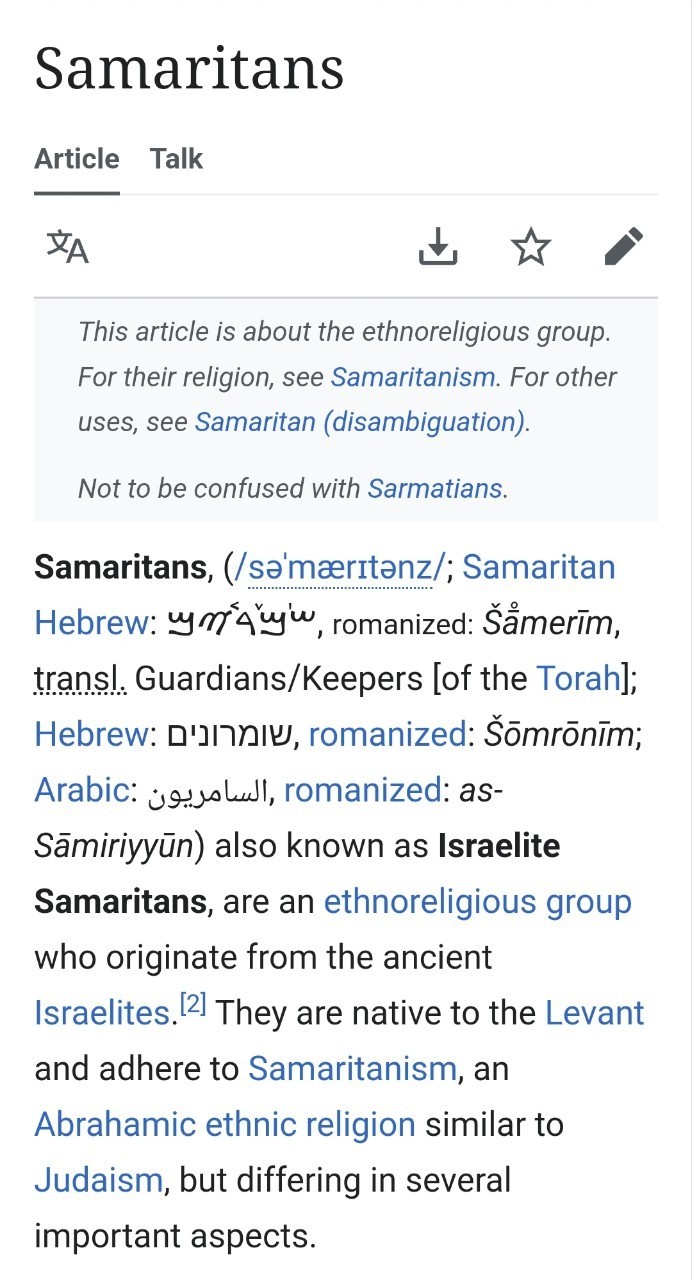
(Western) People seem to think of them as part of the story of Jesus and just have them as a random ethnic group that Jews didn't like at all (true they didn't) and were good to use for stories of morality (they are with the ones used)
Autofill on my browser's search box

Most of those are Franklin Graham's ministry that has nothing to do with actual Samaritans that are still around, only good thing the guy's done that I've seen too.
I'd include a shot of the search results but for some reason google will not let me turn of my location and I'm getting ticked off about it.
Bing being a actual search engine instead of a data mining operation designed to sell you things actually has the real answer up at the top.
874 of them left, not gonna be around much longer with their 'not marrying outside of the group' thing. Hope people are rushing to preserve anything and everything they can as it relates to them.
I don't blame people for not knowing who they are tiny tiny group, but they could say 'say what?' instead of being a dick about it too.
9 notes
·
View notes
Text
I want to hate you but I love you (John x Samaritan reader R)

“Hey honey I’m home,” john said as he walked into the kitchen, taking in your beautiful form. You turned around happily. “Hello love,” you smiled walking up to him and kissing him deeply. “How was your day?” Your wonderful husband asked, burying his face in you neck, kissing it.” “It was pretty good.” You replied. “Was this giving you too much trouble?” He asked, cradling your 8 1/2 month pregnant stomach protectively. “Oh it sure was, kicking non stop.” You smile. “It takes after its beautiful mother I see.” He whispered. “What do you mean?” You asked. “Remember how he first met?” John asked.
Flash back:
You were walking through Samaria with a bucket of water that was getting exhausting to carry. But you suddenly slipped on something and your water bucket splashed onto someone’s clothes. Startled you look up at him and you see a JEW.
‘oh boy’ you thought.
“I am so sorry sir!” You frantically say. “Watch where you’re going lady, look what you did you idiot!” He yelled in your face.
‘Who does this Jew think he is?’ You thought to yourself. You made a simple mistake but that didn’t give him any right to insult you, especially in your region!
You stood up sharply, putting all your weight on one ankle since you just hurt it pretty bad, and look him in the eye. He was the same height as you, with black curly hair dressed in green. You have to admit he was handsome, but that didn’t matter to you.
“How dare you call me that! It was an accident and I apologized, me making a mistake gave you no right to say that to me, especially since you’re a Jew and I’m a Samaritan and we are in Samaria!” You hissed.
John raised an eyebrow, obviously shocked that a Samaritan woman would speak to him that way. But the had to admit, this woman was very beautiful, and her feisty attitude was pretty cute, he started to feel butterflies in his stomach.
“Now if you’ll excuse me, I have to go, have a good day, sir.” You said, passive aggressively, grabbing your bucket you lower it back into the well to get more water.
“your still here,” he teased, supporting himself by grabbing a stand, give you a flirty look.
You sharply look back at him. “What did you say?” You asked a little harshly. “Just saying, you said you had to go, but you’re still here.” “You glare at him. “I’m getting more water, the water I meant to get is on you, and it was worth getting more water just to splash you.”
“mmh, feisty huh? Didn’t expect such a pretty woman to hiss at men like that.” “You froze and blushed a bit, this man was pretty handsome but also annoying. “Mhm,” you replied. “What are you doing in Samaria, I know Jews avoid it at all costs.” You say bringing your bucket back up. “Yeah we do, we have to pass through here though, I’m part of the ministry I’m sure you’ve heard of.” You looked at him shocked. “Oh, you’re one of the followers?” “Yup.” “That’s exciting,” you said. You were about to walk off but you felt a horrible pain. “Ow!” You yelled. “Ma’m are you okay?!” He asked. He looked down at your ankle and saw the it was twisted, probably from the little tumble. “Ma’m could I see your ankle?” He asked. You nodded and allowed him to inspect it. “It’s already warm,” John said concerned. “Can you walk?” He asked. “Definitely not.” You said through gritted teeth. John thought about getting Jesus, but knew he was very busy right now. “Where’s your house?” John asked. “A pretty long walk from here,” you said. “Does anyone live with you?” John asked. “No I’m an orphan,” you replied sadly. “Oh my goodness I’m sorry mam,” he said. “It’s ok,” you replied. “You’re definitely not going to be able to walk,” John said. “I can see that.” You said. John chuckled a bit at your snarky attitude and you couldn’t help but chuckle with him. John thought for a second before saying something. “I can carry you,” he offered. You looked at him in shock. “I can’t ask you to do that sir, especially since your a Jew I don’t want to hurt your reputation by you being seen carrying a Samaritan woman.” “Trust me, the group won’t care, I don’t care, and even if I did theirs no one else I know around here.” He smiled. “Are you sure?” You asked. “I’m certain,” he replied. “Ok then.” You said. He comes over to you and scoops you up bridal style. You blush madly at his touch, this man was extremely cocky and annoying, but also very kind and helpful. “This okay?” He asked. “Yeah,” you reassured. “Good,” he breathed, and started walking with you. It was pretty easy as you are a pretty small woman. “Thank you so much for doing this, I really appreciate it,” you said. “Of course, it’s the least I can do after calling you an idiot.” He said a little guilty. “It wasn’t a big deal—“ you try to say but he interrupts. “No, I over reacted, it was just water, it will dry, I’m sorry.” “It’s ok, you’re literally carrying me right now, so, we’re even.” He chuckled. You were so different then most women, you were feisty and not afraid to speak your mind, but you also seemed very kind, he was positive he was already falling for you, even though you haven’t even known each other for a day. “Oh I never got your name,” John said. “Oh it’s Y/n,” you said. “That’s a beautiful name,” he complimented. Your heart skipped a beat. “Thank you,” you said. “What’s yours?” You asked. “John,” he replied. “Well nice to meet you John, I would have said it earlier if our meeting wasn’t so, you know, different.” “By different you mean you being clumsy and spilling water on me?” He playfully teased. You playfully swatted his arm. “I’m just teasing you,” he laughed. “I’d hope so.” “It’s nice to meet you too y/n.”
The rest of the walk was him and you talking about things like your family, favourite activities, personal details etc. you two were definitely falling for each other.
Once you got to your house he put you onto the chair outside your house to keep rumours at bae. “How’s your ankle?” He asked. “It’s feeling better, I’ll just sit here for a bit until it feels 100%.” “Are you sure, cause I can go get the doctor-“no need” you smiled.
”Alright then, i should get going,” he said. “Are you already leaving Samaria?” You asked. “No, I heard that we’re staying for 3 days, but I have no clue what I’m going to do for three days in Samaria.” “You could come and visit me, only if you want, of course.” You said. John blushed. “Of course I would love to.” He smiled and you returned it.
For the next 3 days you both spent a lot of time together, and your feelings were definitely there. When John was leaving Samaria he went to visit you to say goodbye.
“If it’s something you’d like y/n, I want to write to you, and you to write to me, of course only if you want, I’ve never felt this way about anyone, I—I think I’m in love with you.” He confessed. You were shocked, then that shock turned into joy and you blushed deeply. “I can truthfully tell you that that feeling is fully returned.” You smile. His smile was priceless. “I’m going to miss you, but I’ll write to you as soon as possible,” he said. “I will be anxiously waiting for that letter, I’ll be missing you too.” “Goodbye y/n,” John said, a bit teary eyes. “Goodbye John.”
he was about to walk away but he stopped. “Theirs more thing I wanted to do,” he said. You were confused until he gently cupped your face. You nodded, knowing what he wanted to do. No words needed to be said, John knew that it meant it was okay. He leaned it and gently pressed his lips against yours, you returned the kiss immediately and deepened it, his hands moved from your face to your waist and gripped it gently, you cradled his face. You stayed like that for awhile, but unfortunately John had to leave eventually.
About 5 months later that man became your husband and the father of your three sons and two daughters
(I hope you liked it ❤️❤️)
19 notes
·
View notes
Text

John 4:7-30. “A woman of Samaria came to draw water. “Give Me a drink,” Jesus said to her, for His disciples had gone into town to buy food. “How is it that You, a Jew, ask for a drink from me, a Samaritan woman? ” she asked Him. For Jews do not associate with Samaritans. Jesus answered, “If you knew the gift of God, and who is saying to you, ‘Give Me a drink,’ you would ask Him, and He would give you living water.” “Sir,” said the woman, “You don’t even have a bucket, and the well is deep. So where do You get this ‘living water’? You aren’t greater than our father Jacob, are You? He gave us the well and drank from it himself, as did his sons and livestock.”
Jesus said, “Everyone who drinks from this water will get thirsty again. But whoever drinks from the water that I will give him will never get thirsty again — ever! In fact, the water I will give him will become a well of water springing up within him for eternal life.” “Sir,” the woman said to Him, “give me this water so I won’t get thirsty and come here to draw water.” “Go call your husband,” He told her, “and come back here.” “I don’t have a husband,” she answered. “You have correctly said, ‘I don’t have a husband,’ ” Jesus said. “For you’ve had five husbands, and the man you now have is not your husband. What you have said is true.” “Sir,” the woman replied, “I see that You are a prophet. Our fathers worshiped on this mountain, yet you Jews say that the place to worship is in Jerusalem.”
Jesus told her, “Believe Me, woman, an hour is coming when you will worship the Father neither on this mountain nor in Jerusalem. You Samaritans worship what you do not know. We worship what we do know, because salvation is from the Jews. But an hour is coming, and is now here, when the true worshipers will worship the Father in spirit and truth. Yes, the Father wants such people to worship Him. God is spirit, and those who worship Him must worship in spirit and truth.
The woman said to Him, “I know that Messiah is coming” (who is called Christ ). “When He comes, He will explain everything to us.” “I am He,” Jesus told her, “the One speaking to you.” Just then His disciples arrived, and they were amazed that He was talking with a woman. Yet no one said, “What do You want? ” or “Why are You talking with her? ”
Then the woman left her water jar, went into town, and told the men, “Come, see a man who told me everything I ever did! Could this be the Messiah? ” They left the town and made their way to Him.“ (HCSB)
“Christ’s Transforming Power” By In Touch Ministries:
“Those who have a personal encounter with Christ are permanently and radically changed.”
“Ephesians 2:1-2 says that before salvation, we all are spiritually dead. But when a person places faith in Christ, he or she becomes a new creation (2 Corinthians 5:17). Nowhere is this more evident than in the life of the woman at the well, recorded for us in today’s passage.
Before Jesus came to Sychar, the Samaritan woman’s life was challenging, to say the least. She was not fully welcome in her community, as evidenced by the fact she was going to draw water during the hottest part of the day, long after others had done so. It’s easy to imagine her walking with her head down and eyes averted, hoping to get what she needed without calling attention to herself.
However, she and Jesus spoke directly—a surprising departure from cultural norms of the time—and what He revealed changed everything. After learning of the living water Christ offered, she no longer ran away from others. Instead, she went right to them to share the amazing news (vv. 28-30). What a transformation! Salvation came to her in a moment when she least expected it, and the same can be true for people in our day.”
#bible verses#bible truths#bible scriptures#bible quotes#bible study#christian life#christian living#christian faith#christian devotionals#daily devotion#christian inspiration#christian encouragement#christian motivation#christianity#christian quotes#bible teaching#keep the faith#make him known#john 4:7-30#in touch ministries
31 notes
·
View notes